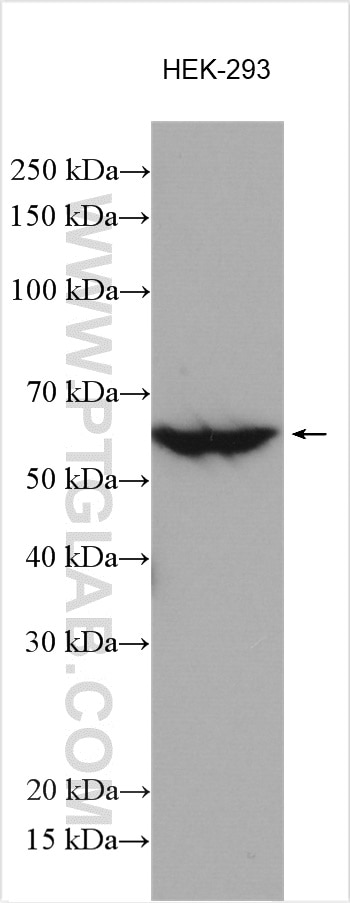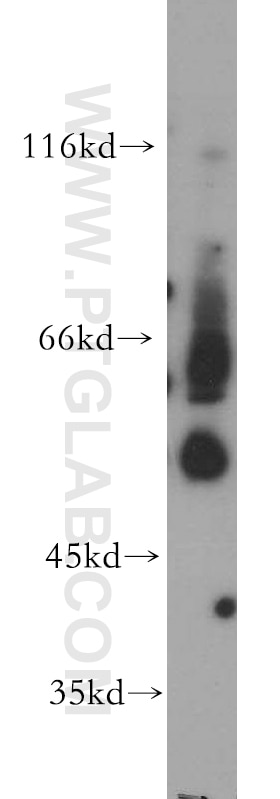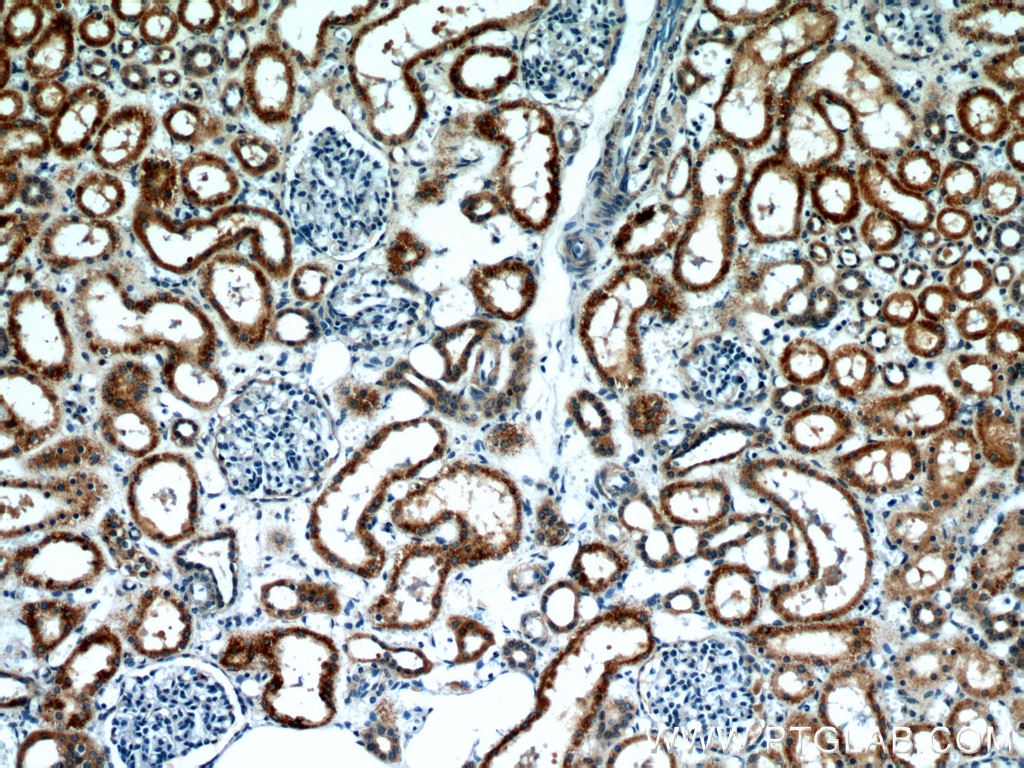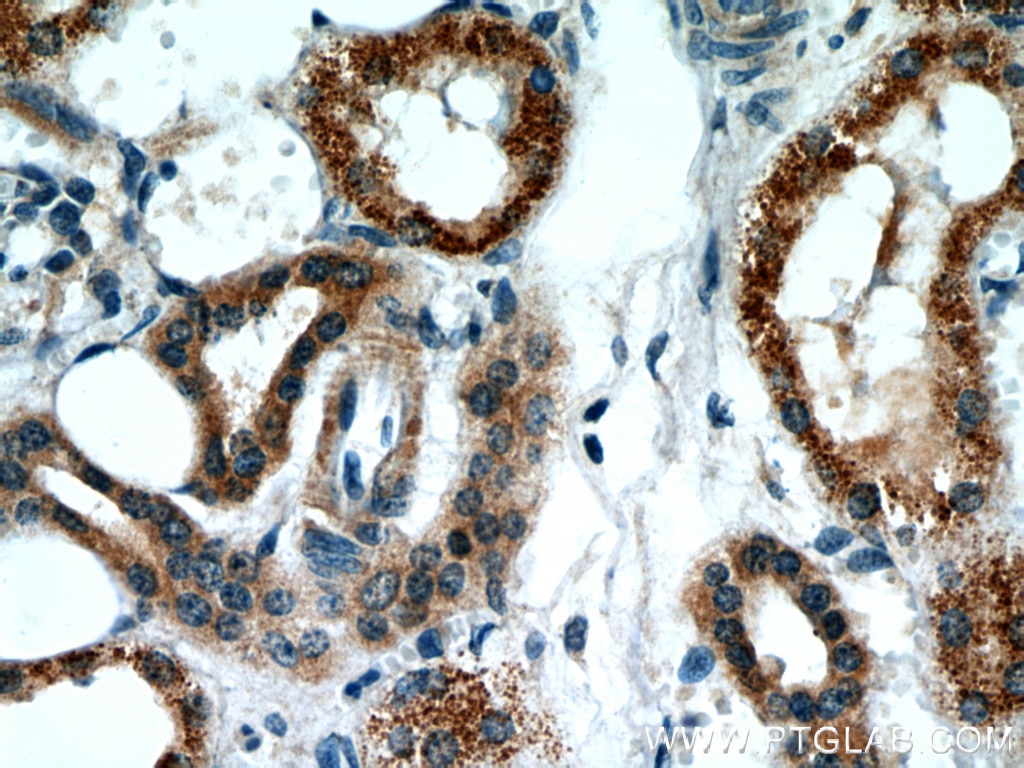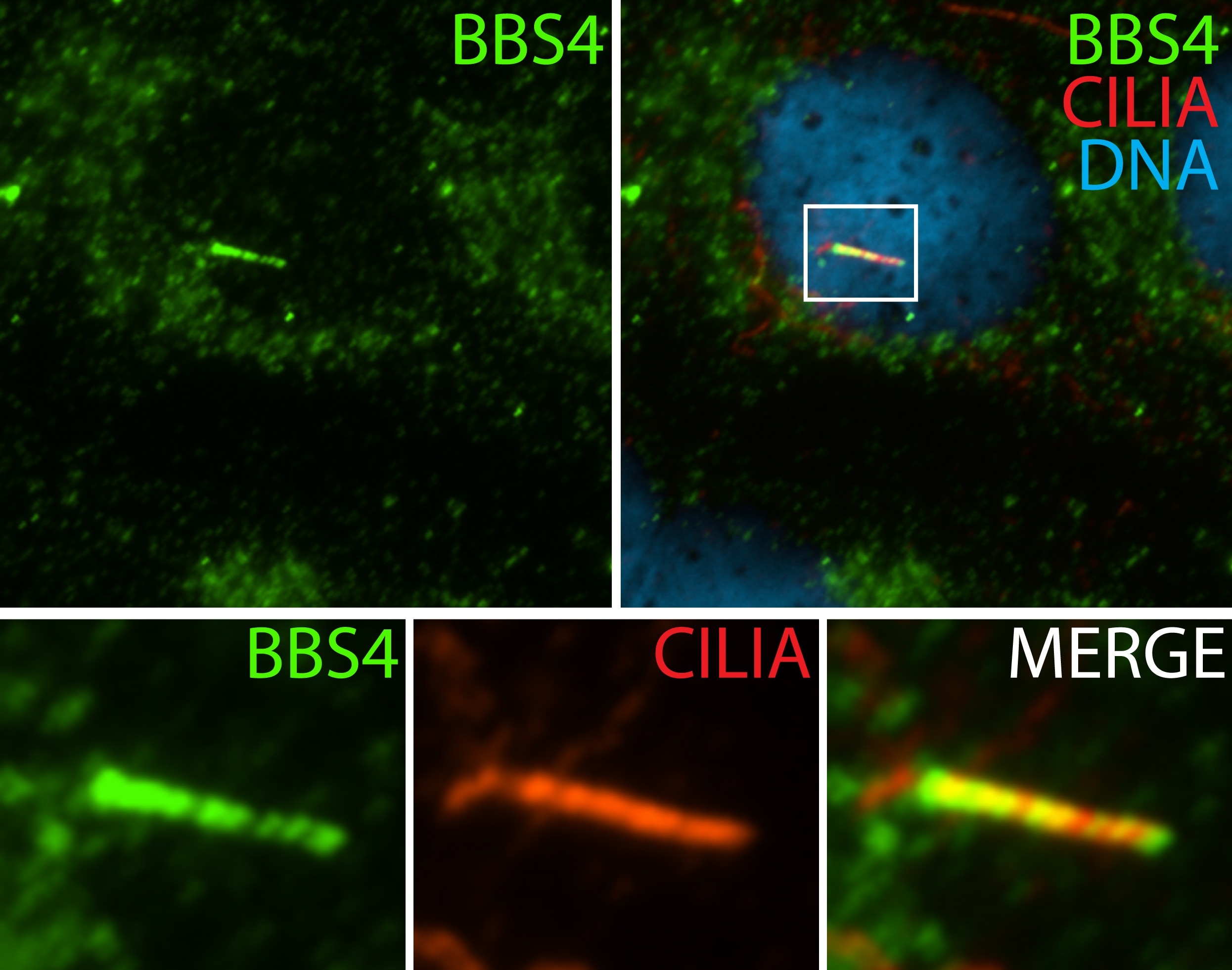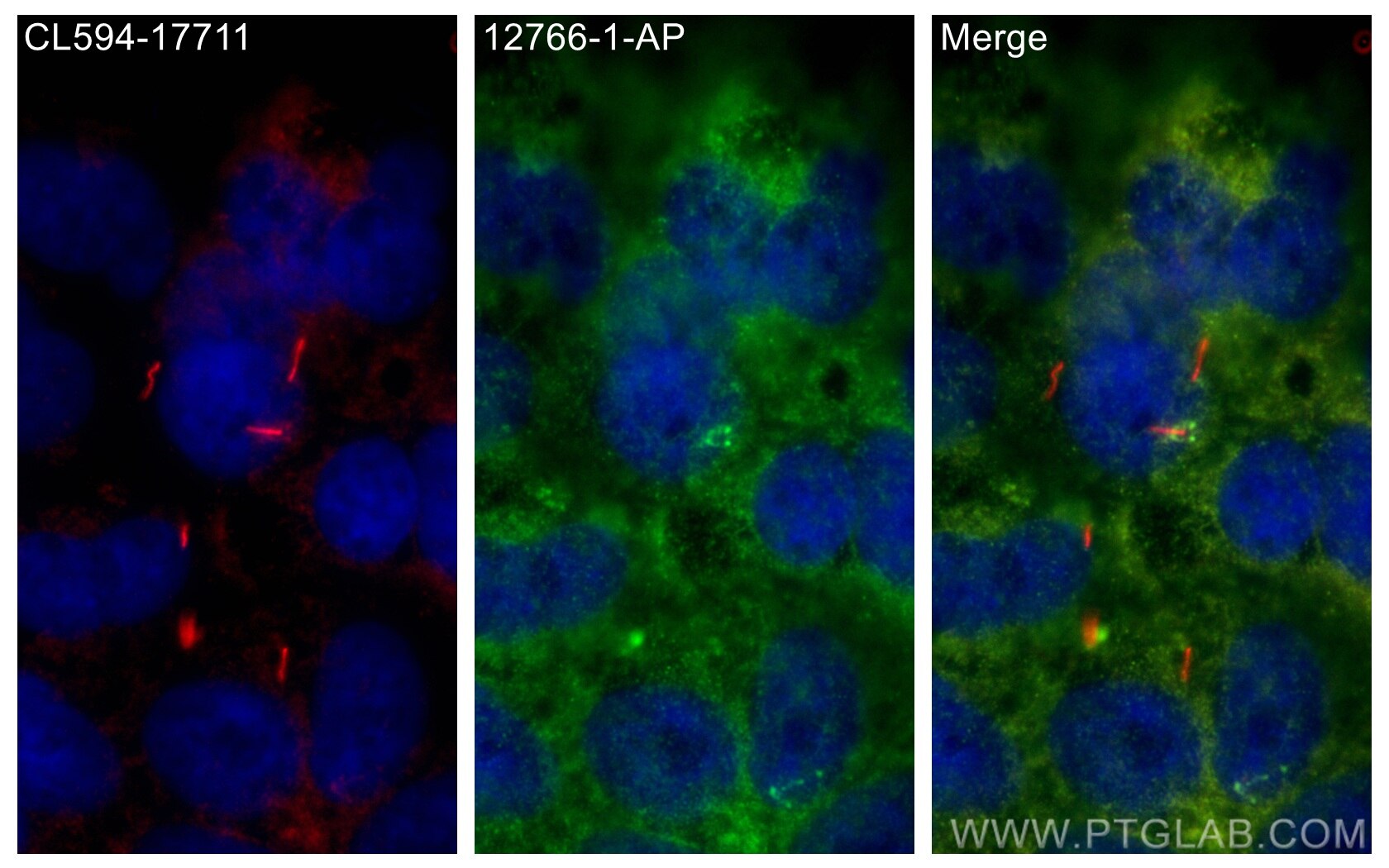Validation Data Gallery
Tested Applications
| Positive WB detected in | HEK-293 cells, mouse kidney tissue |
| Positive IHC detected in | human kidney tissue Note: suggested antigen retrieval with TE buffer pH 9.0; (*) Alternatively, antigen retrieval may be performed with citrate buffer pH 6.0 |
| Positive IF/ICC detected in | hTERT-RPE1 cells |
Recommended dilution
| Application | Dilution |
|---|---|
| Western Blot (WB) | WB : 1:500-1:4000 |
| Immunohistochemistry (IHC) | IHC : 1:20-1:200 |
| Immunofluorescence (IF)/ICC | IF/ICC : 1:50-1:400 |
| It is recommended that this reagent should be titrated in each testing system to obtain optimal results. | |
| Sample-dependent, Check data in validation data gallery. | |
Published Applications
| KD/KO | See 3 publications below |
| WB | See 11 publications below |
| IF | See 12 publications below |
Product Information
12766-1-AP targets BBS4 in WB, IHC, IF/ICC, ELISA applications and shows reactivity with human, mouse, rat samples.
| Tested Reactivity | human, mouse, rat |
| Cited Reactivity | human, mouse, rat |
| Host / Isotype | Rabbit / IgG |
| Class | Polyclonal |
| Type | Antibody |
| Immunogen | BBS4 fusion protein Ag3430 相同性解析による交差性が予測される生物種 |
| Full Name | Bardet-Biedl syndrome 4 |
| Calculated molecular weight | 519 aa, 58 kDa |
| Observed molecular weight | 50-60 kDa |
| GenBank accession number | BC027624 |
| Gene Symbol | BBS4 |
| Gene ID (NCBI) | 585 |
| RRID | AB_10596774 |
| Conjugate | Unconjugated |
| Form | Liquid |
| Purification Method | Antigen affinity purification |
| UNIPROT ID | Q96RK4 |
| Storage Buffer | PBS with 0.02% sodium azide and 50% glycerol , pH 7.3 |
| Storage Conditions | Store at -20°C. Stable for one year after shipment. Aliquoting is unnecessary for -20oC storage. |
Background Information
BBS4 (Bardet-Biedl syndrome protein 4) is one of the early BBS proteins discovered, with 35 mutations reported to cause the BBS phenotype (PMID: 26762677). BBS4 undergoes localization to the centriolar satellites of centrosomes and basal body of primary cilia, where it takes part in recruiting cargo to centriolar satellites and allowing the formation of a functional centrosomal microtubule organizing center (MTOC) (PMID: 25860617). Some research has found that BBS4 expression in humans during the development of CNS and sensory organs, concerning the cardinal clinical signs of BBS (PMID: 33860840).
Protocols
| Product Specific Protocols | |
|---|---|
| WB protocol for BBS4 antibody 12766-1-AP | Download protocol |
| IHC protocol for BBS4 antibody 12766-1-AP | Download protocol |
| IF protocol for BBS4 antibody 12766-1-AP | Download protocol |
| Standard Protocols | |
|---|---|
| Click here to view our Standard Protocols |
Publications
| Species | Application | Title |
|---|---|---|
Nat Commun Coupling bimolecular PARylation biosensors with genetic screens to identify PARylation targets. | ||
PLoS Biol Loss of Bardet-Biedl syndrome proteins causes synaptic aberrations in principal neurons.
| ||
Dev Cell The CEP19-RABL2 GTPase Complex Binds IFT-B to Initiate Intraflagellar Transport at the Ciliary Base. | ||
Autophagy The ciliary protein RPGRIP1L governs autophagy independently of its proteasome-regulating function at the ciliary base in mouse embryonic fibroblasts. | ||
EMBO Rep Aurora Kinase A proximity map reveals centriolar satellites as regulators of its ciliary function. | ||
Elife Islet vascularization is regulated by primary endothelial cilia via VEGF-A-dependent signaling. |
